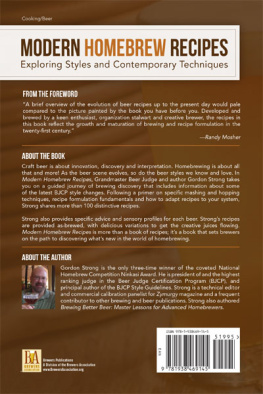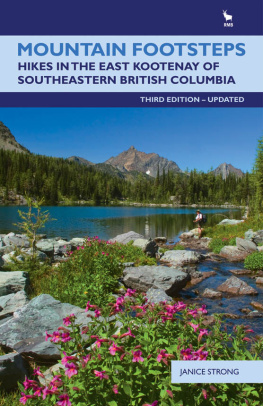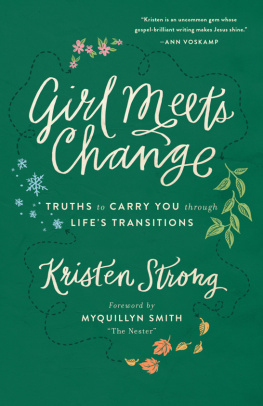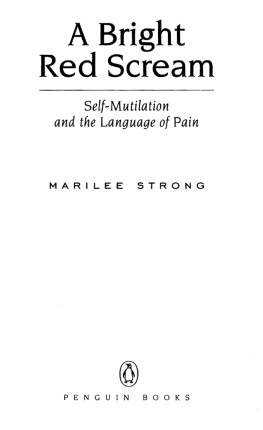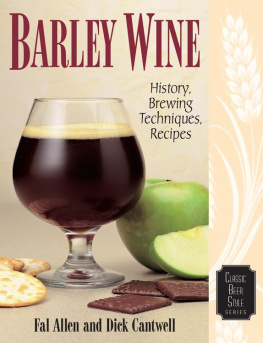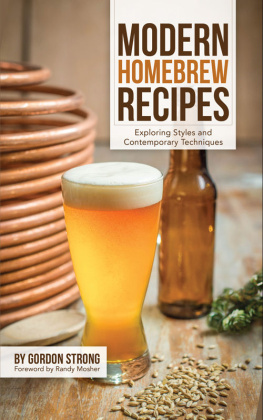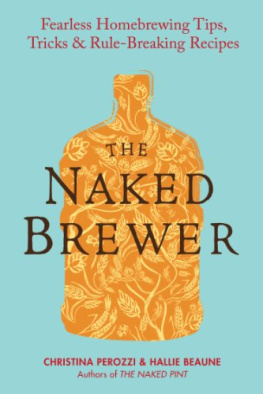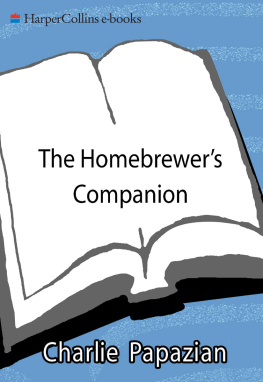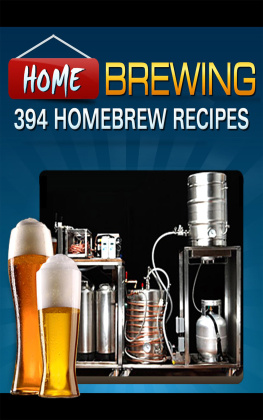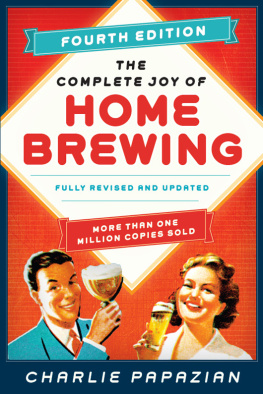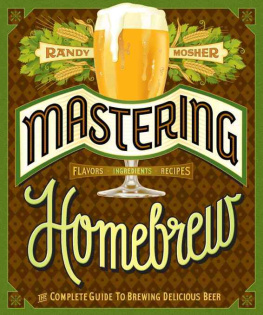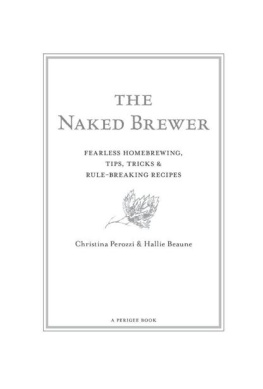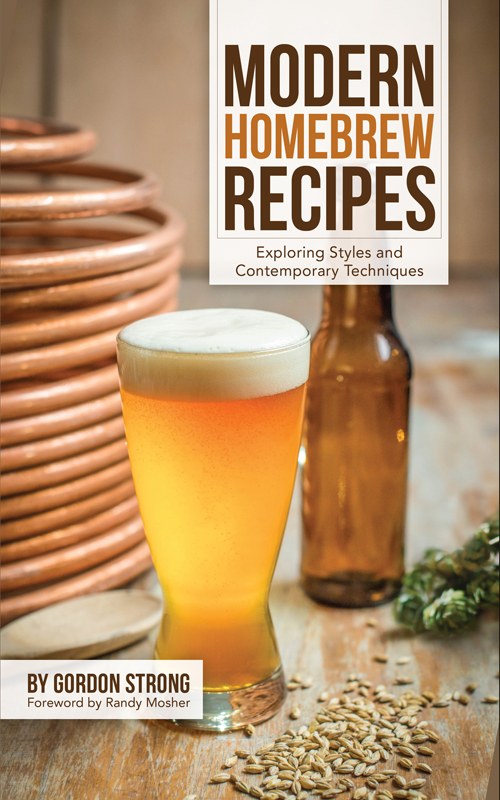All rights reserved. No portion of this book may be reproduced in any form without written permission of the publisher. Neither the authors, editors, nor the publisher assume any responsibility for the use or misuse of information contained in this book.
Modern homebrew recipes : exploring styles and contemporary techniques / by Gordon Strong.
Includes bibliographical references and .
ISBN 978-1-938469-14-5 (alk. paper) -- ISBN 1-938469-14-3 1. Brewing. 2. Beer. I. Title.
Carapils/Carafoam, Carahell, Carafa, Caramnch/Caramunich, Carared, Caraamber, Caraaroma, Carawheat, and SINAMAR are registered trademarks of Weyermann Malting Company.
To the Beavercreek (Ohio) Fire Department, who saved my house and all who lived in it.
The original dedication of this book was to every homebrewer who ever shared a full, complete, and accurate recipe when asked. But as I started to write Modern Homebrew Recipes, life reared its ugly head. An electrical fire started in my attic on Memorial Day, 2014. Fortunately, I was home, our smoke detectors worked, and our local fire department responded in five minutes. They saved the house, but smoke and water damage took out much of my home office and other nearby rooms.
I was able to grab my computers and some notes, and much of my work was backed up on Dropbox. Fast-forward five or so months; we were able to move back into our newly rebuilt and remodeled home, and I got my restored possessions back. Two things I am grateful to have had during this situation are full replacement value insurance, and good off-site backups. Given that a barrel attacked me while I was researching my first book, and a fire tried to destroy my research during my second, Im kind of avoiding barrel-aged and smoked beers now. Why does writing a book always seem to involve something trying to kill me?
Back to the matter at hand, I have a long list of people to thank. First, I would like to thank anyone who bought Brewing Better Beer, and gave me encouraging feedback. So many passionate, enthusiastic brewers took time at conferences, book signings, and beer events to tell me how much my book helped them. I remember an almost tearful brewer at a Brewing Network party telling me how my book had changed his life. I know that same person subsequently became a professional craft brewer. There is no better feedback for an author than letting them know that their time and effort was worthwhile and personally meaningful.
Im indebted to those knowledgeable peers who enjoy talking about beer and brewing as much as I do, and who helped me understand recipe development and beer styles in greater depth. Thanks to Ray Daniels, Stan Hieronymus, Jamil Zainasheff, and Ron Pattinson. Writings from Roger Protz and Matt Brynildson also proved helpful.
Id particularly like to thank those who shared recipes with me that I used or adapted in this book, including Frank Barickman, Kris England, Keith Kost, Jay Wince, Thomas Eibner, Darren Link, Jeffrey McElfresh, James Henjum, Dan George, William Shawn Scott, and Bob Kauffman. Thanks also to those who shared ideas or whose recipes inspired variations, including Curt Stock, Randy Scorby, Rodney Kibzey, Lee Jacobson, and Steve Fletty. Id also like to thank Andy Tveekrem of Market Garden Brewery for inviting me to brew a professional craft collaboration beer with him.
I cant write a book involving beer styles without acknowledging all those within the Beer Judge Certification Program (BJCP) who have worked with me over the years, and those in my region who have continued to support me in elections. Involvement with the BJCP has fed my passion for beer and brewing, and has driven me to research and share what Ive discovered. Its also allowed me to meet great new friends from all over the world.
Speaking of friends, I wanted to take a moment to remember my good friend Tom Fitzpatrick who passed away much too young. I probably would have had a recipe of his in this book anyway, but I wish it wasnt in here as a memorial.
My sincere thanks go to my long-time friend Randy Mosher for writing the , and in helping me understand my place in brewing history. Ive known Randy for as long as Ive been brewing, and weve traveled together to many exciting places around the world. He gave me great advice and encouragement as an author when we were both speakers at a conference in Australia. Nobody beats Randy when it comes to passion and enthusiasm for homebrewing, so his endorsement is personally very meaningful.
Kris England deserves special thanks for his role as technical editor. An accomplished homebrewer for years before he went pro, he was one of the people who constantly challenged me for awards. It should then come as no surprise that he also challenged me over nearly every point in the book. He caught several errors, and worked with me to improve the book significantly. Even though it might look to some that were fighting like two cats in a pillowcase, hes one of my closest and most respected friends.
Thanks once again to my publisher, Kristi Switzer, for her encouraging words as Ive fought through the challenges of putting this book together, and thanks to Jill Redding and Betsy Parks, who both continue to publish my work in magazines.
Finally, I want to thank my wife Karla and my daughter Katya for continuing to put up with me as I obsessed over yet another beer-related project.
A RECIPE FOR HAPPINESS
Brewing beer is a thrilling pursuit, but can be intimidating. While it may seem simple on the surface, it is a densely complicated art form, using a wide range of ingredients that are dependent upon complex biochemical transformations at every stage. To get the best results you cant just dump things into a pot as you would with a batch of spaghetti sauce. It takes a carefully chosen combination of raw ingredients subjected to a precise sequence of mixing, heating, filtering, boiling, cooling, and finally fermenting, to yield drinkable beer.
Thats where a recipe comes in. A good one should offer the brewer a roadmap to success, with lists of ingredients and step-by-step guidance that culminates in delicious beer.
As long as there has been beer, there have been beer recipes. Shortly after the invention of writing, came a beer recipethe earliest written recipe of any kind. Found in present-day Iraq and dating around 1900 BCE, the clay tablet contains The Hymn to Ninkasi, a song that steps poetically through the brewing process. Although quite foreign to us, there are parts (like the mixing of a mash and the rushing of sweet wort into a container) that are instantly recognizable to any homebrewer. In recent years, experimenters have filled in some of the gaps and actually brewed drinkable beer from this ancient set of instructions.

